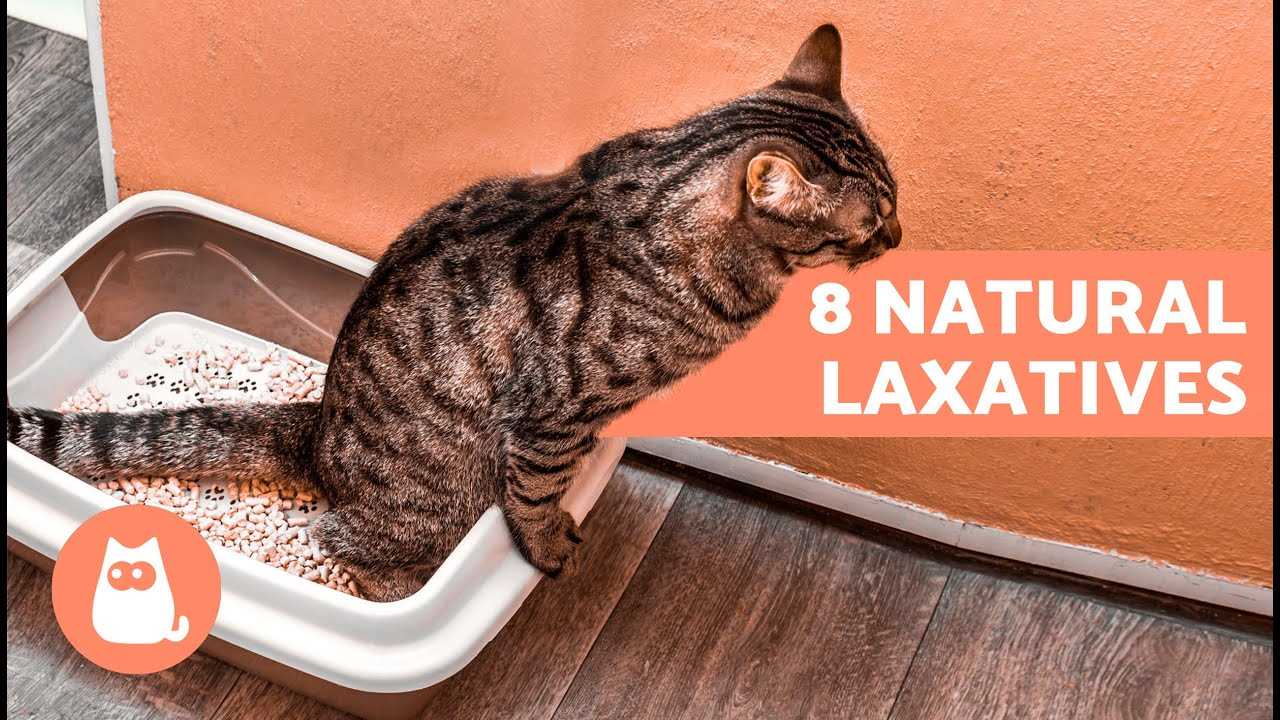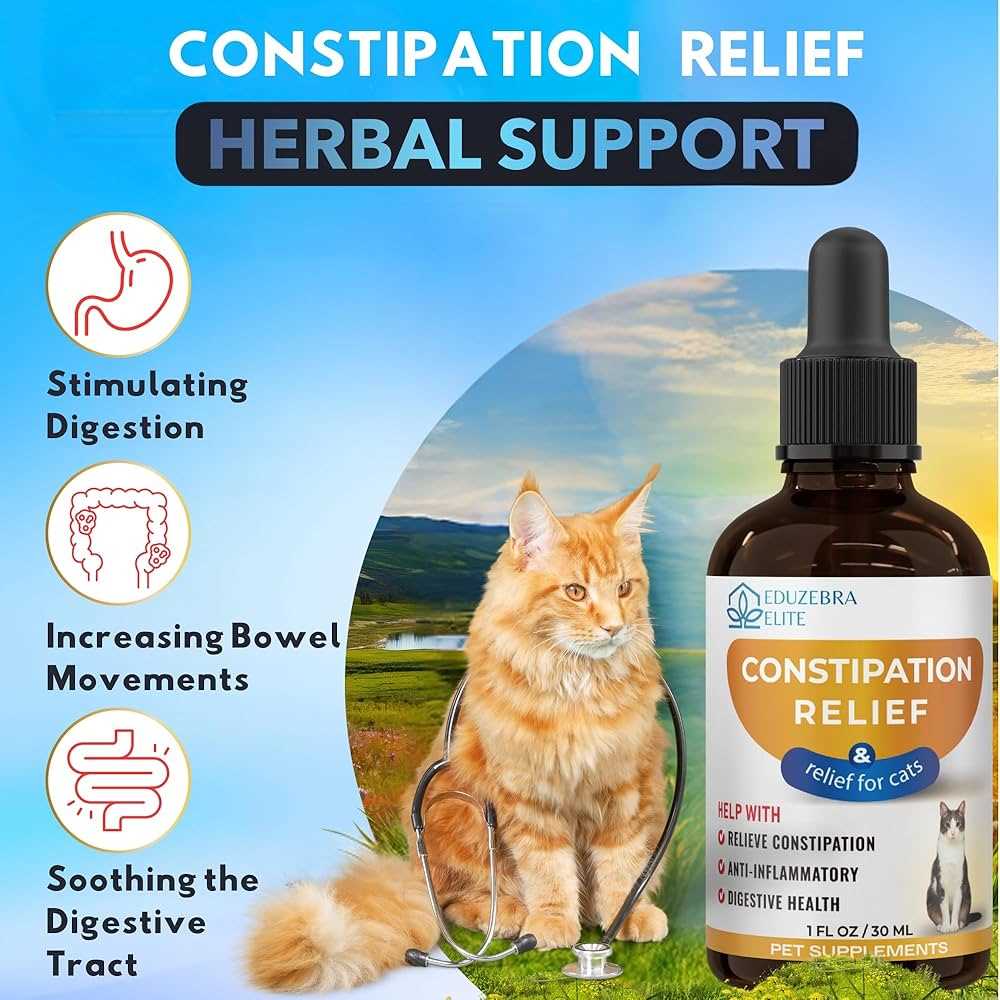Increasing water intake is a crucial first step. Encouraging hydration through fresh, clean water or wet food can significantly help alleviate hard stools. A cat fountain is an excellent option, as many felines are attracted to running water.
Incorporating fiber into the diet serves as another effective strategy. Options like pumpkin puree or specialized high-fiber cat food can promote healthy bowel movements. Just a small amount can make a noticeable difference.
Regular exercise also plays a pivotal role. Engaging in playtime not only strengthens muscles but can also stimulate the digestive system. Simple toys or interactive play can motivate movement and enhance overall well-being.
Consulting a veterinarian for guidance on potential medications may be necessary. There are various products designed to facilitate easier elimination, and a professional can provide tailored recommendations.
Monitoring litter box habits is key. Any changes in frequency or consistency should prompt a closer look at the diet and lifestyle. Early intervention often leads to better outcomes.
Recognizing Symptoms of Constipation in Cats
Straining to eliminate is a clear sign of difficulty. If my human notices me spending excessive time in the litter box without producing anything, it’s a red flag.
Changes in appetite often accompany this issue. A sudden drop in my food intake could indicate discomfort. If I start showing disinterest in my favorite meals, it might be time for a closer look.
Watch for abdominal swelling or discomfort. If my belly feels hard or I seem sensitive to touch, that’s another clue something isn’t right. My usual playful antics may also decline, signaling that I’m not feeling my best.
Foul breath can be an unexpected symptom. If my breath smells more pungent than usual, it could point to digestive troubles. Additionally, if there are any signs of vomiting, it’s a serious concern that should prompt immediate attention.
Lastly, if my litter habits change significantly, such as producing small, hard stools or skipping the box altogether, it’s crucial to investigate further. Keeping an eye on these signs can help ensure my well-being and prompt timely care if needed.
Assessing Dietary Changes to Alleviate Constipation

Switching to a high-fiber diet can significantly improve bowel movements. Look for cat foods that list whole grains, vegetables, or added fiber sources like beet pulp or pumpkin. These ingredients aid digestion and promote regularity.
Incorporating wet food into daily meals increases moisture intake, which is beneficial for digestion. Canned varieties often contain higher water content compared to dry kibble, helping to soften stools.
Adding a small amount of pureed pumpkin or psyllium husk to meals can further enhance fiber intake. Start with a teaspoon and adjust based on individual needs. This can help stimulate bowel activity and ease the passage of waste.
Monitor any changes in behavior or stool consistency when introducing new foods. Gradual adjustments to the diet are essential to avoid gastrointestinal upset. Always consult with a veterinarian before making significant dietary changes to ensure suitability and health.
Maintaining a consistent feeding schedule may also help regulate digestion. Frequent, smaller meals can prevent overloading the digestive system, making it easier for the body to process food and eliminate waste.
Utilizing Hydration Strategies for Feline Digestive Health
Incorporating fresh water sources is non-negotiable. Cats often prefer running water; thus, a pet water fountain can stimulate hydration. Keeping it clean and filled encourages regular drinking. Some felines are more inclined to drink from a bowl. Position it away from food to create an appealing drinking station.
Adding water to dry kibble can significantly boost fluid intake. This simple step not only enhances palatability but also aids in digestion. Aim for a ratio that maintains the kibble’s texture while providing moisture.
Wet food plays a pivotal role in hydration strategies. Opt for high-quality canned options, as they typically contain up to 80% moisture. This choice not only satisfies hunger but also contributes substantially to daily fluid requirements.
Herbal teas, like chamomile or dandelion, offer hydration with added benefits. Always ensure these are safe for feline consumption. Consult with a veterinarian before introducing new beverages into a routine.
Monitoring water intake is crucial. Keeping a log can help identify patterns or changes. If hydration levels appear insufficient, adjustments to diet or water sources may be necessary.
Exploring Over-the-Counter Remedies for Cats
For immediate relief, several over-the-counter products can assist with digestive challenges. It’s crucial to select remedies specifically designed for felines to ensure safety and effectiveness.
- Laxatives: Products containing lactulose or polyethylene glycol can soften stool and facilitate easier passage. Always follow dosage instructions on the packaging.
- Fiber Supplements: Adding fiber to meals can enhance digestive function. Look for powdered options that can be mixed into food.
- Probiotics: These beneficial bacteria support gut health and can improve stool consistency. Available in various forms, including powders and treats.
Before introducing any new product, checking with a veterinarian is wise to confirm suitability for specific health needs. Also, consider incorporating a balanced diet; for example, food for house cats can play a significant role in maintaining regularity.
Monitoring reactions to any remedy is essential. If issues persist or worsen, immediate veterinary consultation is necessary. Regular health check-ups can also help identify underlying issues that may contribute to digestive problems.
When to Consult a Veterinarian for Constipation
If straining occurs during elimination, a visit to the vet is necessary. Observing blood in the stool or any signs of pain while using the litter box should prompt immediate professional evaluation.
Should there be no bowel movement for more than 48 hours, that indicates a serious issue. It’s also critical to seek veterinary advice if vomiting accompanies the situation, as this could lead to dehydration and other health complications.
Weight loss or a noticeable decrease in appetite can signify underlying problems requiring medical attention. If lethargy or behavioral changes are present, those may also indicate a need for expert examination.
For any persistent concerns or if home remedies fail to provide relief, consulting a veterinarian ensures appropriate diagnosis and treatment. Regular check-ups can prevent future occurrences and maintain overall well-being.
Follow-Up Care and Prevention of Future Issues

Regular monitoring of bathroom habits is key. After experiencing digestive troubles, keeping an eye on litter box activity ensures no reoccurrence goes unnoticed. If any signs of discomfort arise, it’s essential to act quickly.
Dietary Adjustments
Incorporating high-fiber foods can significantly improve digestive health. Adding canned pumpkin or specialized high-fiber cat foods promotes smoother bowel movements. Always introduce new items gradually to avoid upsetting the stomach.
Hydration Maintenance
Encouraging water intake is vital for preventing future blockages. Providing fresh water daily and considering a cat water fountain can stimulate drinking habits. Wet food options also contribute to higher moisture consumption.
Regular vet check-ups help ensure ongoing digestive health. Discussing any dietary or behavioral changes is crucial. Staying informed about potential health risks can aid in early detection and treatment.
For additional pet care tips, refer to resources like do electric fences work for big dogs. Knowledge is power in keeping companions healthy and happy.






